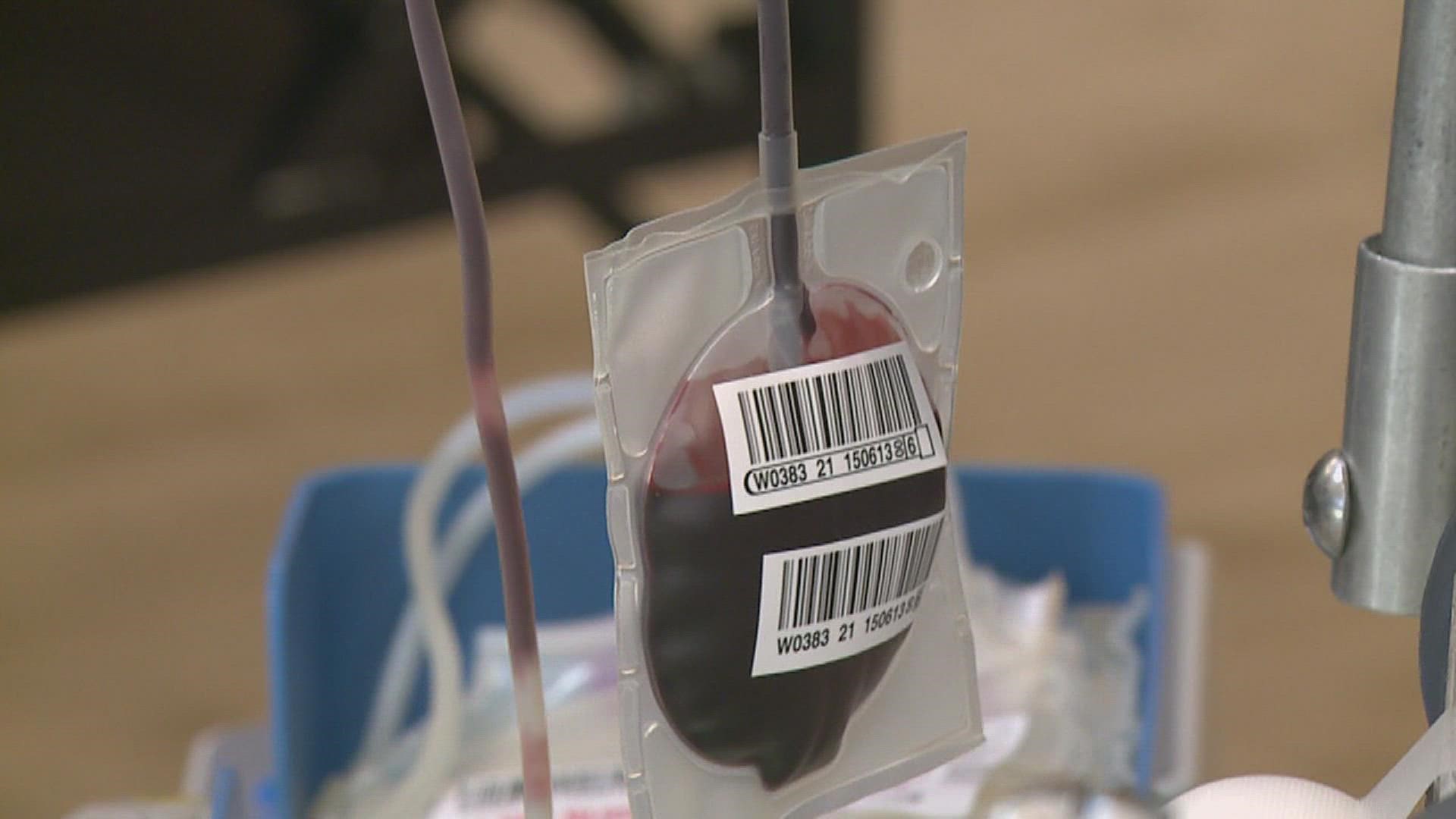DAVENPORT, Iowa — Blood donation centers across the Quad City Area are in critical demand for donors, and there's an added push during Sickle Cell Disease Awareness Month.
Companies like ImpactLife continue to feel the effects surrounding the pandemic as it faces an urgent blood shortage.
ImpactLife on Thursday, Sept. 30 hosted a blood drive with the Davenport NAACP at the MLK Interpretive Center.
"There's a lot of people that need it," donor Vera Kelly said.
"It makes you feel a part of the process," donor Michael Guster said.
Most blood drives were canceled in 2020 due to COVID-19.
"We still aren't seeing the same level of turnout," ImpactLife's Kirby Winn said.
As a push during Sickle Cell Disease Awareness Month, ImpactLife is trying to reach the Black community to supply those in need.
"We want to have a donor base that also matches the community," Winn said.
Sickle cell are red blood cell disorders that causes pain and blocks blood. It's common among minorities, according to the Centers for Disease Control and Prevention; about 1 in 13 African-American babies are born with a sickle cell.
"Maybe mine is different, and I can pass it on to somebody else," Kelly said.
In order to help those in demand blood, ImpactLife staff said having more people take a donate will turnaround a dire blood shortage.
"We wanted to make sure we are doing our part and giving back in some kind of way," Guster said.
"That enables us to have enough blood on the shelves," Winn said.
Kirby said blood donations impact everyone, especially in times of need.
"There's really no group of individuals that might not need a blood transfusion," Winn said.
The goal is to have at least a five-day supply of blood. As of Thursday, ImpactLife is only at about two days.
"It can be very painful but also can be alleviated. Part of the treatment can be a blood transfusion," Winn said.
The more donations, the better chance it will be a life-line especially for people battling diseases like Sickle Cell.
ImpactLife said its facing staff shortages as well, which has slowed the amount of blood drives.

